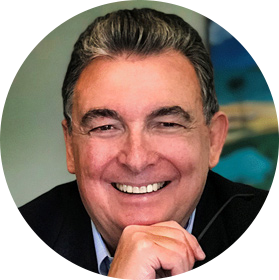
Who Am I?
by Gary Morais, MA and Susan Sorian-Morais on April 17th, 2023
Who am I? Around 95% of people in the USA can’t answer this question!
“…Do not be conformed to this world, but be transformed by the renewing of your mind…”—Romans 12:2
The Challenge
Every day we are being told who and what we are supposed to be. If it’s not a political or an advocacy group, then it is an ad on our phone or TV. Either we are supposed to be “less wrinkled” or “more tolerant” or “more vigilant” or “more successful” or “more highly educated” or “a harder worker” or “slimmer” or “prettier” or “healthier” or “in better shape” . . . and the list goes on. Although some causes and advice can be beneficial, whereas others may not, none of them define who you truly are. They tend to encourage us to compare ourselves to others, and somehow, we alwaysseem to fall short. This constant input can be counterproductive, creating feelings of a lack of confidence, inadequacy, and that feeling of “being stuck.”
Although some causes and advice can be beneficial, whereas others may not, none of them define who you truly are. Things may seem hopeless in our lives. We are faced with multiple challenges, and unless we face the personal challenges such as fear, pain, hurt, failure, blame, and criticism, we will stay stuck in our feelings of hopelessness because we are not dealing with the root cause of how we deal with the number one challenge of our life—the foundation: Who am I?
We all need to:
- Know who we are (in Christ)
- Get past the fears that hold us down
Our society encourages people to take their identity from what they do, their job title, their social status, how they look, what they drive or wear, who their associates are, what clubs they belong to or sports teams they support, etc. The problem is, if you cannot separate who you are from your ideas, then you will be basing your self-worth upon whether your ideas are accepted by others. This makes a person extremely vulnerable in their interactions with others, and in their own self-assurance.
For example, you may be thinking, If you accept my idea, then you accept me. So, the resulting thought and conclusion is, If you reject my idea, you are rejecting me! This kind of thinking results in communication problems because there is no connection; people feel hurt, feel rejected, get angry, withdraw, and begin to discount their own ideas, experiencing anxiety and depression, and they become fearful to share their thoughts. They may continually tend to give in to others to “keep the peace,” but if it continues, they may become resentful, blaming others, and the other person may not even be aware. This can result in feelings of anger and vengefulness; eventually, they may even begin to attack others. Feelings of covetousness, jealousy, and envy may arise, because they are never satisfied with who they think they are and see others as a threat to them or their position.
All Because a Person Does Not Know Who They Are
None of this has anything to do with who they are, but has to do with reacting to an assumption based upon a false idea—just because someone does not agree with them. Based on empirical research and clinical practice, it is estimated that 95% of people in the U.S. do not know who they are. The result? We can find ourselves vulnerable to the influence of what is around us, instead of being secure in who we really are. This affects communication and relationships with family, coworkers, friends, acquaintances, neighbors, people in authority or public figures, etc. When we become secure in who we are, we find ourselves to be less vulnerable to those around us.
So, the question becomes: How do we become secure in who we are? When you realize you are greatly loved and created by God for a purpose, that realization becomes the beginning of your path toward TRUE self-discovery. I would challenge you, this week, to take notes on every TV or Internet ad you see, or even hear on the radio. Every ad will address what the public “needs.” This is simply Marketing 101! Look for the indirect, subliminal or even direct attacks on your self-worth. In what areas are they telling you that you are insufficient or lacking? Is it your appearance, education, health, or social status? This doesn’t mean it is all bad or evil, but you can heighten your awareness of what your mind has been taking in without even noticing, contributing to discontentment because of the false ideas of who the world says you really are. You may be surprised at how much unintentional input you have been subjected to—and this doesn’t even begin to address the messages conveyed by our entertainment.
The Results of Not Knowing Who You Are:
- You are emotionally vulnerable.
- You are constantly trying to please others or argue your point.
- You make emotional concessions—and do not gain internal confidence and self-assurance.
- Life is a never-ending circle of fear and stress.
- Most importantly, you don’t know who you are in Christ.
The Results When You Know Who You Are:
- You don’t need to argue or feel hurt when others disagree with you.
- You feel emotionally stronger and less vulnerable around others.
- You gain inner confidence and self-assurance.
- This lowers your inner anxiety and stress.
- You know who you are in Christ.
*For more information on who you are, you can get the book Who Am I? at www.journey2love.org. Contact [email protected] or [email protected] for more information.

Gary Morais, MA, has dedicated his life to helping people for over 37 years with a professional background as an author, Certified Master Coach, business and ministry consultant, and Licensed Marriage and Family therapist. He holds a patent based on brain-thinking research and is an expert in Human Development working with MDs to help their patients reduce medications and lower stress and depression. Gary is also the Executive Director of Journey2Love, a ministry that equips others to build Christlike character and provides easy-to-use, practical, biblically-based programs, trainings materials, and tools specific to each individual’s life. This includes retreats, discipleship programs, and Certification Training for life coaches. He developed the Px-12 Profile which measures the brain’s thinking algorithms that are linked to stress, fears, well-being, and human performance. Gary is a frequent speaker and has appeared on multiple TV and radio programs helping people to better understand themselves and others. See more at: www.journey2love.org
Susan Sorian-Morais has been actively involved in church ministry for over 40 years as a Bible study teacher, children’s ministry and worship leader, pastor’s assistant, Biblical lay counselor and certified grief group facilitator. Susan is a Certified Equipping Profile Coach, a Certified Associate Christian Life Coach with ICCI (International Christian Coaching Institute), a freelance writer, editor, bookkeeper, and author. She has been a pastor’s widow, raised eight children, and has assisted in and established several different ministry-related 501(c)3 nonprofit organizations. Her greatest delight is found in discipling others and helping them to grow by practically applying God’s Word to their lives. Susan is serving alongside her husband, Gary Morais, partnering in the 501(c)3 nonprofit ministry of www.journey2love.org.

ABCs of Transformation Series: Freedom—Starts with the A-ha
by Rolfe Carawan, M.Ed. and Lea Carawan, MA on April 10th, 2023
How did a simple conversation while on vacation with a friend turn into a transformational experience? Neither of us planned it or even had it on our minds, yet a few sentences describing a deep conviction became an “A-ha” moment. We were sitting in the hotel coffee shop in a small town in Washington state. It was the only place open because of the major snowstorm that had stranded us with our friends, Mark and Kathy, on our way to vacation.
Mark was an Associate Pastor at our church in Seattle. It was a large church, and Mark was responsible for multiple ministries and teaching several classes. I (Lea) was struck by how serene he appeared no matter how busy things got. Following my curiosity, I asked him, “Mark, how do you handle the stress and stay so peaceful when there is such demand for your time?” Mark’s response caught me completely off guard, “I don’t feel any stress. I don’t have to do anything that I am doing.” I asked, “What? What do you mean you don’t have to do anything?” He replied, “If I don’t do another thing but hang out on the couch, it doesn’t change how much God loves me. I don’t HAVE to do anything.”
Now to some, that doesn’t sound like the makings of an epiphany. However, his response struck like a bulldozer as questions flooded my mind. Why do I feel so stressed and driven? What is causing me to feel this pressure to perform? The answer was sobering. I believed the lie that to be found worthy of being loved, I had to prove myself through success and being accomplished. Without realizing it, I was trying to impress God and ensure I was love-worthy. What would it take for me to believe the truth that I was already utterly and fully loved by God? This was a moment where God truly opened my eyes to something I had heard a hundred times before, but what was I going to do about it now?
The A-ha is when you see something you haven’t seen before. It is often the beginning of transformation. It may be the revelation or epiphany that allows you to finally see a problem clearly and/or the solution to a problem. When God is ready to change us, He often pulls back the veil so that we might see Truth. While education will inform you, revelation from the Word of God will do much more—IT WILL TRANSFORM YOU!
It is such a joy to help facilitate an A-ha moment for someone. We believe it is up to the Holy Spirit to do the work, although we can help by creating a safe, loving environment for a conversation, asking a good question, really listening, and praying for revelation. As a coach, mentor or ministry leader, we try to listen for what God is doing in someone’s life, and it sometimes leads us to ask questions that may cause them to reflect on their core beliefs in a fresh way. We might ask, “What or who has had the biggest impact on how you see ______________?” “Was or is that a reliable source?”
Romans tells us that the transformation process begins with the renewing of your mind: “Therefore, I urge you, brothers, in view of God’s mercy, to offer your bodies as living sacrifices, holy and pleasing to God—this is your spiritual act of worship. Do not conform any longer to the pattern of this world, but be transformed by the renewing of your mind. Then you will be able to test and approve what God’s will is—his good, pleasing and perfect will” (Romans 12:1–2 NIV). In other words, don’t copy the behavior and customs of this world, but let God transform you into a new person by changing the way you think. Then you will know what God wants you to do, and you will know how good and pleasing and perfect His will is.
The ABCs of Transformation (The A-ha, Breaking Free, and Commitment to Change) is one of the key elements of the Transformed Living Coaching Model. As we continue our journey of personal transformation and help others along the way, we will discuss how God breaks us free from sinful patterns by exposing lies and replacing them with His revealed Truth. As we learn to cooperate with Him more fully and grow in obedience to His Word, God’s grace frees us through the power of His Holy Spirit. Transformation is a process. For some, the process is lightning quick, while for others, it is painfully slow and seemingly never ending. So, during the process, we encourage all to, “seek radical obedience, give abundant grace!”

Rolfe Carawan, MEd, is the President of LifeMatters Ministries, which focuses on discipleship, biblical principles, and tackling relevant issues of our times, and is also the Co-Founder of Carawan Global Group. Inspired by his passion to relieve suffering and release potential, Rolfe brings his real-world experience and strategies to individuals in every walk of life. Known for his contagious enthusiasm, his coaching draws out the best in people, igniting a renewal of energy, engagement, and productivity, as well as successfully transitioning people through change, transforming human behavior, strengthening relationships, and overcoming generational gaps. His winning strategies have been developed over 30 years of successfully coaching, training, and motivating people. Speaking to organizations ranging from Fortune 500 and high-tech companies to healthcare and nonprofits, Rolfe has spoken to nearly a million people throughout America, as well as audiences on four continents. He is an author (Profiles in Character and Character Revolution), successful teacher, coach, trained counselor, and uses experiential learning methods to create healthier relationships at home and work, effectively implement change, and strengthen communication. Rolfe has worked and volunteered his services in a number of countries including Brazil, Ghana, Israel, Ukraine, Russia, Canada, and Mexico. He currently on the Board of Reference for the International Christian Coaches Institute (ICCI) and is a Certified Transformed Living Coach Trainer™. See more at www.transformedliving.org

Lea Carawan, MA, is the founder of Transformed Living, a ministry that provides Bible-based resources and services designed to make disciples who love God, walk in freedom, and build life-giving relationships at home, work, and play. She and her husband, Rolfe, built a successful speaking, coaching, and consulting firm serving organizations ranging from Fortune 500 and high-tech companies to healthcare and nonprofits. For nearly 20 years, they helped leaders implement winning strategies that brought out the best in people. Lea was the cofounder and served as the Executive Director for the Congressional Prayer Caucus Foundation. For over a decade, she led the effort to equip and mobilize the largest network of federal and state elected leaders—nearly 100 sitting members of Congress and 900 state legislators—who are committed to standing for faith and implementing proactive strategies to advance religious freedom, prayer, and America’s Judeo-Christian heritage. She is a speaker, consultant, ordained minister, and multi-certified life, relationship, and spiritual formation coach and trainer. With a career spanning three decades, Lea has transitioned seamlessly between entrepreneurship, fashion, consulting, ministry, and motherhood. Lea has been a frequent speaker at women’s meetings, conferences, and marriage retreats around the world, including countries such as Brazil, Ukraine, and the United Arab Emirates. Lea is currently on the Board of Reference for the International Christian Coaching Institute (ICCI) and a Certified Transformed Living Coach Trainer. See more at: www.transformedliving.org

Lea Carawan, MA, is the founder of Transformed Living, a ministry that provides Bible-based resources and services designed to make disciples who love God, walk in freedom, and build life-giving relationships at home, work, and play. She and her husband, Rolfe, built a successful speaking, coaching, and consulting firm serving organizations ranging from Fortune 500 and high-tech companies to healthcare and nonprofits. For nearly 20 years, they helped leaders implement winning strategies that brought out the best in people. Lea was the cofounder and served as the Executive Director for the Congressional Prayer Caucus Foundation. For over a decade, she led the effort to equip and mobilize the largest network of federal and state elected leaders—nearly 100 sitting members of Congress and 900 state legislators—who are committed to standing for faith and implementing proactive strategies to advance religious freedom, prayer, and America’s Judeo-Christian heritage. She is a speaker, consultant, ordained minister, and multi-certified life, relationship, and spiritual formation coach and trainer. With a career spanning three decades, Lea has transitioned seamlessly between entrepreneurship, fashion, consulting, ministry, and motherhood. Lea has been a frequent speaker at women’s meetings, conferences, and marriage retreats around the world, including countries such as Brazil, Ukraine, and the United Arab Emirates. Lea is currently on the Board of Reference for the International Christian Coaching Institute (ICCI) and a Certified Transformed Living Coach Trainer. See more at: www.transformedliving.org

An Ordinary Tuesday
by Steve Siler on April 3rd, 2023
For the last twenty-five years, I have been part of a regular Tuesday morning men’s prayer group. The number has fluctuated—never more than eight, never less than three—but what has not fluctuated is the day and time. It’s been a lifeline for me – a constant in a world of change.
This has been a safe place, a place where one can speak an unflattering truth without fear of judgment because the next week, the other guy is going to have his own dirty laundry to air. We have cheered each other on through raising children and achieving career goals. Our successes have been all the sweeter because we’ve been able to share them together.
In comparing notes as husbands, and trust me when I say that all of our wives have benefitted from it, we have supported each other through major life transitions like children’s weddings and the passing of parents. And we’ve stood by each, sometimes praying about a situation for years, often being able to celebrate when circumstances that seemed hopeless resolve in a way more beautiful than anything we could imagine.
Sometimes one of us will have big news, but when we don’t, my friend Tony will often say, “Thank God for an ordinary Tuesday.” I’ve come to adore that sentiment. You see, I grew up in Hollywood where everyone is trying to be a movie star. Then I moved to Nashville where everyone wants to be a country music star. The idea was, “Boy, won’t it be great when I . . . win an Oscar, have a hit single, etc.” Whatever the goal, it was always out there somewhere in the future.
However, the truth, of course, is that we all do this. Life will be better when we get that job, buy that car, live in a bigger house . . . fill in the blank., The problem with this kind of living is it guarantees that fulfillment and happiness will always be out of reach. What we have now is never good enough.
My friend Rick says, “God hasn’t given us tomorrow. He has only given us today.” He is right. The trouble is, when we live for things that can only happen tomorrow, it’s easy to overlook the gifts of today—amazing things right in front of us. A sunset. A flower. A loved one’s kiss. A great song.
My friend Lisa told me that every morning when she opens her eyes, she says, “A bonus!” She said it was her way of acknowledging she wasn’t entitled to another day. It helped her greet the new day as a gift for which to be grateful. So, I thought I would try it. Guess what? It works! I find it especially helpful when the day holds a task I’m not looking forward to. This simple statement of gratitude immediately changes my perspective. Maybe I’m not looking forward to doing my income tax, but there will be other things in the day I will enjoy—ordinary things like talking with my wife, taking a walk, playing the piano. And so on. When you look at your day that way, you realize none of our days are ordinary. Every day is a gift from our loving God for which we should be thankful.
Several years ago, John Mandeville and I had the opportunity to write some children’s Bible songs. Naturally we had to boil some of the themes down to a child’s level, but today I was thinking of one of those songs. It’s called “Thank you Father.” I happen to think it’s a good message for us adults too, just the way it is (swap out the word “work” for “school” if necessary). Here are the lyrics:
Thank You Father for this day
Thank You Lord that I can praise You
Thank You Father, thank You Father for this day
Thank You Father for this life
Thank You Lord that I can love You
Thank You Father, thank You Father for this life
Thank You Father for Your church
Thank You Lord that I can worship
Thank You Father, thank You Father for Your church
Thank You Father for Your Word
Thank You Lord that I can hear You
Thank You Father, thank You Father for Your Word
Thank You Father for Your son
who means so much to me
Thank You Father for the cross
where I was set free
Thank You Father for my home
Thank You Lord for all my family
Thank You Father, thank You Father for my home
Thank You Father for my school
Thank You Lord for my friendships
Thank You Father, thank You Father for my school
Thank You Father for this day
Thank You Lord that I can praise You
Thank You Father, thank You Father for this day
Thank You Father for this life
Thank You Lord that I can love You
Thank You Father, thank You Father for this life
Here’s to another ordinary day full of the miracle of God’s love!

Steve Siler is Founder and Director of Music for the Soul, a multi-award-winning ministry using songs and stories to bring the healing and hope of Christ to people in deep pain. Music for the Soul is a community of professional musicians, therapist, pastors, and ministry leaders committed to offering life-giving resources to those whose hearts are hungry for understanding, self-worth, wholeness, and peace. An accomplished songwriter and music producer, Steve has had over 550 of his songs recorded. He won the Dove Award for Inspirational Song of the Year with I Will Follow Christ. His nine #1 and 45 top-ten songs include Circle of Friends and Not Too Far from Here. Steve has spoken at the National Right to Life Convention, the American Association of Christian Counselors, and the National Center on Sexual Exploitation Summit among others. He has authored two books: The Praise & Worship Devotional and Music for the Soul, Healing for the Heart: Lessons from a Life in Song. See more at www.musicforthesoul.org/

Pretty Little Words
by Haley Scully, MA on March 27th, 2023
Adapted from GracefullyFrank.Blogspot.com
Pretty little words are everywhere. Words crafted and overlaid on pretty little pictures. Some make us laugh, some stir up our loyalty, some make us dream a bigger dream than we dreamt a minute ago, and some pull us deep into bitter or sweet old memories. Words have a lot of power.
Words can be true and not true. Sometimes the exact same words are true in one instance, yet not true in another. It’s not the words themselves that make them true or not true; it’s the circumstances and the motives of the one who speaks, whispers, types, twists, sings, and uses them.
For instance, let’s look at these words: “What Is Meant for You Won’t Pass By You”
Those are pretty. There is something in the reassurance that can settle a racing heart, encourage a rejected soul, lift crying eyes, and set a face like flint. A pretty little mantra can lift us up from someplace low. I am disappointed, but “What is meant for me will not pass me by. What is meant for me will not pass me by.”
As we scroll through social media and come across little bits of inspiration, we should stop for a second and ask, “What does that even mean?” Pretty little words can be encouraging when they are true, and yet they can also be deceptive when they are not true. That deception can keep us headed in a wrong direction. When we apply pretty little words that are not true, it can be like putting our hands over our ears and singing “la la la la la” to drown out true words that are spoken to us—true words that could lift us from a pit instead of making us comfortable in it. When words are true, they set us free. When words are not true, they keep us chained.
What would it take for these particular words to be true or not true? “What is meant for you will not pass you by.”
First, who is it that has what is meant for you? Where is what is meant for you currently? Who put what is meant for you in motion so that it is heading toward you? Is it God? Is it your own personal output? Is it chance? Does the word meant cancel out the word chance?
If you do believe in God, and you believe God, then you probably believe somewhere in your gut that God has a plan. Do your life and actions demonstrate that belief or is that belief somewhere over on the sidelines as you go about running plays? His Word says He created each of us for a purpose. That blows my mind because there are a whole lot of “us.” However, we don’t have to be able to grasp it in order to trust it. In faith, we step out and experience it, and then our trust and faith are confirmed.
Here is the thing though about the pretty little words above: What is meant for you can and will pass you by. If we believe God has the hand in what is meant for us, then unless we position ourselves in His hand, our meant for us will pass right by.
God’s meant isn’t about a specific person, place or thing. His meant has so much more to do with our hearts in any circumstance (read Paul’s words in Philippians 4) than it does with our specific circumstances. Nevertheless, as we begin to live out our meant, specific people and places and things do come with it.
Our eternal salvation is not contingent on continually being placed well. The moment we are placed in Christ, our salvation is secure. God’s grace is amazing. The cross of Christ was sufficient for eternity. It was and is meant for us in this life. It is our unique path and purpose determined by our Creator that can be missed. He says He will guide us if we walk in faith and let His Word light the way—His true Word. It is a tragedy if we let ourselves be satisfied with being sedated by pretty little words as we walk along any old path.
We should demand our path; cutting through distraction, temptation, and rejection, trekking over mountains and through valleys with faces set like flint to get on our path. Wherever you sit or walk today, you can begin to go after it. There is no age limit. There is no “righteousness requirement” or “level” of holiness you have to reach before you begin. It’s a choice and determination. It doesn’t mean all your circumstances will change. It means your whole life will change even in your existing circumstances. That is what God does when we say the word yes.
- Then, those pretty little words are true.
- Then, we can know that we are directly in the path of our meant, in plenty or in want.
- Then, even when confusing, we can rest in the sovereignty of the One who created us for a purpose.
- Then, there is peace.
This Man Missed His Meant
The rich young ruler who asked Jesus what he must do to inherit eternal life (Luke 18:18-30) believed Jesus was good. He believed Jesus was the right one to ask, and that He had the answer. If this ruler was scrolling through reading inspirational quotes from Jesus, he likely would have shared them on his own wall, tweeted them to his followers, posted the picture on his own site, and would have been inspired, too. Yet, apparently, the ruler was satisfied with just the pretty little words. He was not actually ready to follow them into the path of what was meant for him. Jesus told him to get rid of what was in between them (for him, it was wealth), and to, “Come, follow me.”
Not everyone in Scripture got the specific game plan of “Come, follow me” during Christ’s life on the earth. Some people He healed and then told to go and tell everyone. Others He healed and then told to go and not tell anyone. Some He taught then walked to the next village to teach others. And to some, He said, “Come, follow me.” Here was this ruler’s meant for him handed to him through the words of Christ Himself. The ruler hung his head in sadness. He chose otherwise because the cost seemed too great. He went home to the life of his choosing, that probably still blessed him with fruits of this earth, but he missed what was meant. One life was maybe more comfortable than the other, but assuredly less fulfilling than if he was fulfilling his meant for him. He had the freedom to choose. So do we.
These pretty little words were not true for the rich young ruler. If he went back to the house after his encounter with Jesus and wrote them on his bathroom mirror to encourage his heart, then these pretty little words would have been his deception that kept him on the wrong path. There are a lot of examples of people missing their meant for them in the Bible, including King Saul and Samson. And there are a lot of examples of people stepping into their meant for them by faith and obedience, such as Ruth and Paul.
Will these pretty little words be true or not true for you? Every single morning, we have the opportunity to choose for them to be true as we lay down reins we think we hold and take faith steps toward the One who holds what is meant for us.
Haley Scully, MA, is the Vice President of Strategic and Ministry Projects with Hope for the Heart. In 2011, she began her work in the ministry’s counseling department before moving into the international work. She serves to develop partnerships, coordinate resources and distribution methods, and provide basic counseling and care ministry training for church leaders and parachurch organizations in over 25 countries around the world. Haley concurrently helps provide leadership for professional development initiatives that include training and resourcing Christian caregivers, life coaches, and counselors. She earned her Bachelor of Science degree in Communications from Oklahoma State University and Master of Arts in Marriage and Family Counseling from Southwestern Baptist Theological Seminary. Haley is passionate about connecting hurting hearts to hope in Christ and the practical application of God’s Word to their everyday lives. She is a speaker, author, trainer, and serves as a guest host on June Hunt’s live, one-hour, call-in counseling program, Hope In The Night.

Haley Scully, MA, is a speaker, author, and trainer and has been with Hope for the Heart since 2011. She currently serves as the Senior Vice President, Ministry Operations. She began her work in our onsite counseling programs and moved into international ministry where she has delivered training in over 30 countries. She manages initiatives, develops partnerships, coordinates resources, and provides basic counseling, coaching, and care ministry training for church leaders and parachurch organizations around the world. She also co-hosts the popular podcast, Hope Talks, sharing practical insights on how to find hope in everyday challenges.
Haley earned her degree in Communications from Oklahoma State University and Master of Arts in Marriage and Family Counseling from Southwestern Baptist Theological Seminary. She is passionate about connecting hurting hearts to hope in Christ and application of God’s Word to their everyday lives.

Happy Marriage? Better Life!
by Gary Rosberg, EdD and Barb Rosberg, BFA on March 20th, 2023
Did you know a happy marriage affects more than just your family? It’s true!
A review of the research conducted by the National Healthy Marriage Resource Center found that happily married soldiers have a “leg-up.” Results showed that soldiers in happy marriages had better ratings from their supervisors and were promoted faster than single soldiers. The review also revealed married soldiers had fewer job-related problems and fewer issues with drugs and alcohol.1
So, how can you cultivate some healthy habits to keep your marriage happy and loving through the years? Here’s our suggested “Love List.”
Once a Day
- Touch and cultivate the valuable practice of tender touch on a daily basis.
- Hug for at least five seconds.
- Remember the two most important minutes of your marriage are right when you meet at the end of the day.
- Laugh because the more you laugh together, the more you love your spouse. Humor helps with coping.
Once a Week
- Do something active that lifts your spirits. This is an insurance policy against boredom.
- Broaden your sphere of interest. Make a list of activities, circle those you might find pleasurable, and then make time to do them.
- Give your mate space to enjoy certain activities that are his/hers alone.
- Boost your mate’s self-esteem. When he/she helps you reach your potential and boosts your self-confidence, your options seem limitless. Look for diamonds—dig through the rough to look for the good in each other.
- Compliment your spouse.
Once a Month
- Rid yourselves of harmful residue. Explore unfinished business (unpaid bills, how long in-laws stay for Christmas, disciplining the kids, etc.). Talk about it and do your best to make healthy decisions.
- Talk about your money. Admit to any deception and set up safeguards that will keep you honest.
- Talk about your emotional needs and issue that bring anger. Forgive when you feel hurt.
- Protect each other from over-commitment. Decide together what you and your family can handle.
- Update how well you know your spouse. Check in with him/her—What would he or she like you to know?
- Fire up passion in the bedroom. Schedule a sex date at least once a month. Guard your time fiercely.
Once a Year
- Review your top 10 highlights of the year. Decide together what constitutes a highlight. Make the review a memorable tradition.
- Chart your course for the coming year. Be proactive about where you would like to be as a couple 12 months from now. Ask God for guidance. Take time to consider what really matters most to both of you in your relationship.
- Write a mission statement and revisit it yearly. Begin with, “Our purpose is . . .” Use this statement to keep your marriage on track and consider what you would like to change.
- Think of six things you wish were different and set ways to improve them in the next year. Set specific goals. Understand the power of making resolutions together. Awaken your can-do attitude and trust God in your coming year together as a couple.
*For more practical marriage advice, check out The Great Marriage Q&A Book. It’s available in our online bookstore!
1Military Service and Marriage: A Review of Research,” Reviewed by Emily L. Hull, National Healthy Marriage Resource Center, https://www.healthymarriageinfo.org/wp-content/uploads/2017/12/review_mmilitarylife.pdf.

Gary Rosberg, EdD, and Barb Rosberg, BFA, are sought-after Executive Life and Marriage and Family Coaches, John C. Maxwell certified international speakers and trainers, award-winning authors, broadcasters, and well-known international marriage conference presenters. Together, the Rosbergs are co-founders of The Rosberg Group, where they provide marriage coaching, as well as one-on-one executive life coaching. Authors of over a dozen books, including 5 Love Needs of Men & Women and the Gold Medallion winning 6 Secrets to a Lasting Love, Barb brings decades of wisdom from coaching and teaching alongside Gary’s 25,000+ hours of counseling to coaching executive couples. The Rosbergs use their gifts of insight, humor, and wisdom in coaching couples “up” to become the best they can be. Their nonprofit ministry, America’s Family Coaches, has impacted marriages across the United States and globally for almost 35 years. They serve first responder and military marriages in their home state, and in particular, wounded warrior couples. Married since 1975, Gary and Barb have two married daughters and 12 grandchildren, and reside outside of Des Moines, Iowa. See more at: www.TheRosbergGroup.com

ABCs of Transformation Series: Freedom—As Simple as ABC
by Rolfe Carawan, MEd and Lea Carawan, MA on March 13th, 2023
Adapted from the Transformed Living Blog
How often have you heard someone say, “I have asked Jesus so many times to change me! And yet, no matter how hard I try, I am still stuck. It’s exhausting!”? How often have you experienced that feeling yourself? We hear of God’s miraculous power; we hear testimonies of how God instantly delivered someone from X, Y, and Z; and yet, that isn’t everyone’s experience.
How many of us have jumped through all the hoops we were told to jump through, but are still bound and enslaved to unwanted thoughts and behaviors? With every successive attempt and failure, hope is diminished. Thankfully, God is generous and loving, providing continued opportunities and pathways forward in our life journey. Let’s unpack three elements that contribute to real and lasting change—the ABCs of Transformation.
Consider Saul before he became Paul. Before his fateful trip to Damascus and conversation with Jesus, he behaved according to his deeply held belief that Jesus and all His followers were a threat to the true God; however, when God revealed the truth to him on the way to Damascus, everything changed! And we see his radical change. The power of some revelations can move us in a new direction. It can change everything. The “A-ha” is the first element in the ABCs, and it is often the first step, although not always enough for real transformation.
At times, there is something else keeping us from being able to align our behaviors with our new beliefs. Spiritual strongholds may have formed, and it is here that we need “Breaking free” by the power of the Spirit, the B in the ABCs. Scripture tells us that, “The weapons we fight with are not the weapons of the world. On the contrary, they have divine power to demolish strongholds. We demolish arguments and every pretension that sets itself up against the knowledge of God, and we take captive every thought to make it obedient to Christ” (2 Corinthians 10:4–5 NIV).
A third powerful component of the ABCs is the “Commitment to change.” In James, we are instructed to be “doers of the word, and not hearers only” (James 1:22 ESV). James explains why we need to choose to do the right thing because “whoever knows the right thing to do and fails to do it, for him it is sin” (James 4:17 ESV). We have a role to play in our own transformation. It is by engaging our wills; however, willpower alone is not enough.
After his transformative moment, Paul cried out to the Lord in frustration because he continued to do the things he didn’t want to do and didn’t do the things he wanted to do. He committed to changing, but lacked the power in and of himself. Paul’s prospect of changing, as well as our own, is wholly dependent upon the grace of God as offered through Jesus. Yes, you read that correctly—God is the One who changes us!
Every part of the transformation process is dependent on God’s grace. When walking with another person through their personal epiphanies, we find it helpful to ask questions that uncover their understanding of God and the role of God’s grace in their change process. We might ask questions such as, “What do you need to hear from God about ______?” “If He said _____, how would that change things for you?”
It is God’s grace that conforms us into “the image of his Son” (Romans 8:29 ESV). Remember, “we are his workmanship, created in Christ Jesus for good works” (Ephesians 2:10 ESV). The One who made us can be trusted to transform us progressively and decisively.
So, as we come alongside others to cooperate with what God is doing by His grace, let us go forward in confidence that “he who began a good work” (Philippians 1:6 ESV) in us will complete it, “to the praise of his glorious grace” (Ephesians 1:6 ESV).

Rolfe Carawan, MEd, is the President of LifeMatters Ministries, which focuses on discipleship, Biblical principles, and tackling relevant issues of our times, as well as the cofounder of Carawan Global Group. Inspired by his passion to relieve suffering and release potential, Rolfe brings his real-world experience and strategies to individuals in all walks of life. Known for his contagious enthusiasm, his coaching draws out the best in people, igniting a renewal of energy, engagement, and productivity, as well as successfully transitioning people through change, transforming human behavior, strengthening relationships, and overcoming generational gaps. His winning strategies have been developed over 30 years of successfully coaching, training, and motivating people. Speaking to organizations ranging from Fortune 500 and high-tech companies to healthcare and nonprofits, Rolfe has spoken to nearly a million people throughout America, as well as audiences on four continents. He is an author (Profiles in Character and Character Revolution), teacher, coach, trained counselor, and uses experiential learning methods to create healthier relationships at home and work, effectively implement change, and strengthen communication. Rolfe is passionately committed to discipleship and helping people through the process of creating lasting change. He, along with his wife Lea, established Transformed Living. Rolfe has worked and volunteered his services in Brazil, Ghana, Israel, Ukraine, Russia, Canada, and Mexico. He is currently on the Board of Reference for the International Christian Coaching Institute (ICCI) and is a certified DiSC Behavior Assessment Trainer and Certified Transformed Living Coach Trainer. See more at: www.transformedliving.org

Lea Carawan, MA, is the founder of Transformed Living, a ministry that provides Bible-based resources and services designed to make disciples who love God, walk in freedom, and build life-giving relationships at home, work, and play. She and her husband, Rolfe, built a successful speaking, coaching, and consulting firm serving organizations ranging from Fortune 500 and high-tech companies to healthcare and nonprofits. For nearly 20 years, they helped leaders implement winning strategies that brought out the best in people. Lea was the cofounder and served as the Executive Director for the Congressional Prayer Caucus Foundation. For over a decade, she led the effort to equip and mobilize the largest network of federal and state elected leaders—nearly 100 sitting members of Congress and 900 state legislators—who are committed to standing for faith and implementing proactive strategies to advance religious freedom, prayer, and America’s Judeo-Christian heritage. She is a speaker, consultant, ordained minister, and multi-certified life, relationship, and spiritual formation coach and trainer. With a career spanning three decades, Lea has transitioned seamlessly between entrepreneurship, fashion, consulting, ministry, and motherhood. Lea has been a frequent speaker at women’s meetings, conferences, and marriage retreats around the world, including countries such as Brazil, Ukraine, and the United Arab Emirates. Lea is currently on the Board of Reference for the International Christian Coaching Institute (ICCI) and a Certified Transformed Living Coach Trainer. See more at: www.transformedliving.org

Coaching Positive Change to Win at Life and Work
by Dwight Bain, MA on January 2nd, 2023
What does it take to win at work and love? It’s a great question, and since everyone faces different challenges, there isn’t a specific answer that works for each person. A better approach is to focus on the real source of motivation by exploring underlying motives. When you discover the motive behind why you want to win at work, you will be on track to shaping a strategic approach, speed toward accomplishing goals, and avoid distractions that lead to failure. Here are some key coaching questions to ask:
- Do you want to win at work to deepen your resume and advance your career?
- Does success at work mean making more money to bring home to your family?
- Does career success give you deeper personal meaning and fulfillment?
- Does winning bring you a sense of satisfaction by proving you are the best?
Greater professional success usually gives a person much greater options in their personal life because increased income often brings the flexibility to solve problems and control schedules by delegation. Outsourcing to save time and money is a wise use of resources. However, working harder to gain greater self-esteem is a dangerous motivator because it takes major sacrifices of time and energy and can often become a “black hole” of busy activity leading to workaholism. Career burnout comes from an attempt to fill deep emotional insecurity through aggressive professional activity. Burnout will not lead to professional success and sadly, is incredibly common among people who have not seen the importance of mapping out a realistic career coaching plan to win at work, without losing at home.
Finding the Energy for Career Success
How can you stay motivated to achieve greater career success? Start with your core values, which can be identified through mapping out your internal motives, especially since motives lead to motivation. Here are four key areas to stay focused and win at work while feeling greater energy and fulfillment in the process.
- Insight
There is a verse I was taught to pray every day, “If any many lacks wisdom let him ask God and it will be given to him” (James 1:5). When you know you don’t know the answers, then asking for God’s direction is a wise use of time. Generate insight by asking the Lord to reveal your special gifts and natural abilities, regardless how much you may feel like you are struggling. Everyone has talent and ability at something. It takes insight to see it and then it takes courage to stay focused to light the fire of desire in your heart, especially when you may feel like giving up. The career coaching process could begin with some of the people close to you, like a marriage partner, family member or trusted friend because they already know so much about your personality, character, motivation, and inner drives. Asking many questions to gain greater insight will protect against impulsive choices, and ensure a greater likelihood of success, so don’t be afraid to ask too many questions, but do be afraid to stay silent on this important element.
- Interests
Once you know your gifts, talents, abilities, and skills, the next step is to see how those unique gifts could be transferred into something so incredibly interesting that you want to show up and learn more about it every day. There is an old saying that the curious are never bored. When you are inspired about pursuing something extremely interesting, you lose all track of time because you find it so fascinating. Linking your interests with greater insight leads to the next part of the process to win at work.
- Importance
Once you get inspired to pursue the aspects of your job or career calling that are most interesting, the next element to stir up personal motivation is to discover what is most important. What is valuable to you? What has great meaning? What activities or organizations do believe in strongly? Everyone believes in something, yet many of us have not taken time to explore and discover the core motives that fuel our motivation to create positive change. Now that you have mapped out the key areas that motivate people you are ready for the final stage.
- Identity
When people figure who they are, and what they enjoy doing, they are on track to live out their purpose and have more fun in the process! Perhaps the huge success of many work-related reality TV shows (like Shark Tank) is because they reveal what many people secretly would like their daily work experience to be—a place that allows them to utilize their creative abilities in an environment that rewards taking big risks to achieve greater results. It’s not hard to stay motivated when you know why you are going to work and it’s not hard to stay in the race to win, either. In fact, it makes it easy to move from a fear of failure to moving forward with a new dedication to finish strong!
Now you have the basic career coaching strategies needed to win at work. Yet, even with these insights, many people are afraid to try and often give up on the belief they could have a better life by moving from their “day job” over to fully experiencing their “dream job.” Why do they lack career confidence? Why are they still likely to fail? Here are the hidden motivations that most often lead to losing at work.
- Fearfulness
Times are tough and many people are afraid about what the economy will do in the future. In fact, they can become so frozen in fear they are afraid to try. It’s normal to feel afraid, yet when you are overwhelmed with fear, it can often lead to becoming indecisive and totally “zoning out.” Since running away from reality feels easier than facing it, some people choose to stick their head in the sand and completely deny what’s happening to their industry. Think about how Blockbuster Video failed to make strategic changes with their customers and eventually filed for bankruptcy protection, while competitor organizations like Netflix and Red Box were thriving. Some people do this in a passive way and just slowly sink, while others try to avoid reality by using substances or media to escape. Avoiding major change by hiding in fear will lead to a major crisis. Being aware of these dangers and opening the conversation will help you ask tough questions to protect yourself when heading toward a dangerous situation.
- Frustration
This could include marriage partners or coworkers connected to people who are already losing at work, but it’s more about you. Think about the times you were trying, but it just didn’t come together. You know you want to finish strong and have a meaningful career, yet you feel like you lack the horsepower to really pull out in front of the crowd. When frustration builds up, it puts you at great risk, because you face a tough choice. Finish with mediocre results and risk getting laid off or downsized to try again at the next job, or just check out to avoid feeling the pain of not performing to your potential or quitting.
- Failure
Sadly, this type of unmotivated person is the easiest to spot because they checked out a long time ago. When someone has reached this level, they are so unmotivated they give up on even trying at the most basic of tasks, so their resume just reflects a freefall down to zero. They totally and completely fail, which crushes their confidence and for many it kills the desire to try again, and this often leads many coaching clients to give up completely and just drop out on the idea that a meaningful career was ever even a possibility for them. They are too depleted to even believe that God’s promise spoken through the prophet Jeremiah, “Call to Me, and I will answer you, and show you great and mighty things, which you do not know” (Jeremiah 33:3) is still available to them.
Finally, be encouraged to face your fears, frustrations, and the fear of failing with words of encouragement from God’s Word. If you take time out daily to meditate on the Bible, it will guide you from fear to greater faith by identifying your core motives, and then translating that into the powerful motivation needed to win at work. You are stronger than you think, and in case you are feeling beat up by life, listen to the words of Moses in Exodus 14 as a final challenge when feeling unmotivated or scared about your career: “Do not be afraid. Stand still, and see the salvation of the LORD, which He will accomplish for you today…The LORD will fight for you!”

Rolfe Carawan, MEd, is the President of LifeMatters Ministries, which focuses on discipleship, biblical principles, and tackling relevant issues of our times, and is also the Co-Founder of Carawan Global Group. Inspired by his passion to relieve suffering and release potential, Rolfe brings his real-world experience and strategies to individuals in every walk of life. Known for his contagious enthusiasm, his coaching draws out the best in people, igniting a renewal of energy, engagement, and productivity, as well as successfully transitioning people through change, transforming human behavior, strengthening relationships, and overcoming generational gaps. His winning strategies have been developed over 30 years of successfully coaching, training, and motivating people. Speaking to organizations ranging from Fortune 500 and high-tech companies to healthcare and nonprofits, Rolfe has spoken to nearly a million people throughout America, as well as audiences on four continents. He is an author (Profiles in Character and Character Revolution), successful teacher, coach, trained counselor, and uses experiential learning methods to create healthier relationships at home and work, effectively implement change, and strengthen communication. Rolfe has worked and volunteered his services in a number of countries including Brazil, Ghana, Israel, Ukraine, Russia, Canada, and Mexico. He currently on the Board of Reference for the International Christian Coaches Institute (ICCI) and is a Certified Transformed Living Coach Trainer™. See more at www.transformedliving.org

Lea Carawan, MA, is the founder of Transformed Living, a ministry that provides Bible-based resources and services designed to make disciples who love God, walk in freedom, and build life-giving relationships at home, work, and play. She and her husband, Rolfe, built a successful speaking, coaching, and consulting firm serving organizations ranging from Fortune 500 and high-tech companies to healthcare and nonprofits. For nearly 20 years, they helped leaders implement winning strategies that brought out the best in people. Lea was the cofounder and served as the Executive Director for the Congressional Prayer Caucus Foundation. For over a decade, she led the effort to equip and mobilize the largest network of federal and state elected leaders—nearly 100 sitting members of Congress and 900 state legislators—who are committed to standing for faith and implementing proactive strategies to advance religious freedom, prayer, and America’s Judeo-Christian heritage. She is a speaker, consultant, ordained minister, and multi-certified life, relationship, and spiritual formation coach and trainer. With a career spanning three decades, Lea has transitioned seamlessly between entrepreneurship, fashion, consulting, ministry, and motherhood. Lea has been a frequent speaker at women’s meetings, conferences, and marriage retreats around the world, including countries such as Brazil, Ukraine, and the United Arab Emirates. Lea is currently on the Board of Reference for the International Christian Coaching Institute (ICCI) and a Certified Transformed Living Coach Trainer. See more at: www.transformedliving.org

